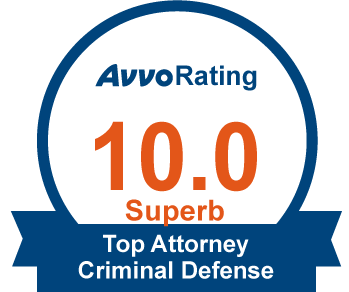What Is a "Violent Crime?"
In general, a "violent crime" is always a felony in California and is defined by the violent nature of the act in violating another person in an extreme way.
However, to a large extent, violent crimes are tightly tied to California's Three Strikes Law, which puts a "strike" on one's record for any conviction on a number of specifically enumerated violent or "serious" felonies.
The violent felonies listed in PC 667.5c count as such for the Three Strikes Law. These include:
- Murder, first of second degree, or voluntary manslaughter.
- Attempted murder.
- Mayhem (PC 203 & 205), which is the willful dismemberment of another's body part or disablement thereof.
- Rape, oral copulation by force, lewd acts with a child,
- Continuous sexual abuse of a child.
- Kidnapping.
- Robbery, of any sort, not just armed.
- First-degree burglary.
- Carjacking.
- Acts of arson.
- Acts of extortion.
- Threatening witnesses or victims in a court case.
- Assault for the purpose of committing a felony.
- Any felony that inflicts "great bodily injury" on a victim.
- Felonies in which the perpetrator made personal use of a firearm.
- Felonies where a "gang enhancement" is added to the sentence.
- Any felony where life in prison or the death penalty are possible punishments.
- Violations of certain laws relating to explosives, "destructive devices," or WMDs.
What Is the "Three Strikes Law?"
The Three Strikes Law in California is a violent felony sentencing structure whereby repeat offenses on violent/serious felony crimes receive more severe punishment than they otherwise would. Longer prison terms, loss of the possibility of probation, and loss of the ability to earn "custody credits" are the main sentencing enhancements that can apply.
A first strike does not add to your sentence, but it will affect any future violent crime convictions. A second offense doubles the normal prison time. A third offense can get you 25 years to life in prison instead of a much-lower "ordinary" sentence for the same crime, if it had been a first-time violent/serious felony.
Many have seen Three Strikes as among the harshest sentencing standards in the U.S., and some question its effectiveness. Others hail it as keeping violent criminals off the streets, for longer at least. But it does little good to debate these matters in the court room (that belongs to the realm of politics), for the law is what it is. At Long Beach Criminal Defense Attorneys, we understand the details of the Three Strikes Law and of all its subsequent modifications. We know how to win you the best possible outcome to your case by navigating the legal landscape as it stands.
The serious felonies listed in PC 1192.7c and the violent felonies listed in PC 667.5c are the strikes of the Three Strikes Law. We understand how to build you a solid defense against any and all of those specific charges.
Modifications of the Three Strikes Law
By 2011, there were some 32,000 second-strikers and some 9,000 third-strikers in the California prison system. That made up around 25% of all Californian inmates. Some of these were, due to details of the law, serving extended terms for a second/third strike for petty theft. Many began calling for "reform of the reform."
In 2012, Californians passed, by a large majority, Prop 36 to try to make the Three Strikes system "more fair." They modified the law so that a third strike could not mandate a 25 to life term in prison anymore for anything less than a serious/violent felony.
Additionally, anyone sentenced to 25 years to life under the original Three Strikes Law, who wouldn't have been if tried under Prop 36 rules, was allowed to petition for a sentence reduction. But presiding judges were still allotted the ability to decline such a sentence reduction if they felt it would pose an "unreasonable" risk to the public.
In 2014, Prop 47 passed and further modified Three Strikes. It permitted those in prison for relatively less serious drug and theft crime felonies to also petition for a sentence reduction, to a misdemeanor. Prop 47 also gave judges the same discretion as Prop 36 but went on to define the phrase "unreasonable to the public safety" as a high risk the inmate would, if released, commit an extremely egregious violent felony, like rape or murder.
At Long Beach Criminal Defense Attorneys, we understand the complex rules of when and where Prop 36 and 47 apply and of who can petition for a sentence reduction and how that process works.
Special Rules Applying to "Three Strikes Law Cases"
Besides the basics on violent crimes and the Three Strikes Law, there are other important fact to know about it. Here are some of the most relevant issues typically encountered.
- Juvenile Convictions
Three Strikes allows that a juvenile "sustained petition" (equivalent of a conviction) still counts as a strike if a serious/violent felony, if the perpetrator was at least 16 at the time of committing it, and if the offense is included in Welfare & Institutions Code 707b.
- Multiple Strikes per Conviction
It is possible to get more then one conviction and therefore more than one strike out of a single incident and a single court case. That fact only goes to underscore the importance of relying on only the most experienced violent crimes defense attorney.
- Out of State Convictions
Under Three Strikes, a conviction in another state that, had it occurred under California law, would have counted as a strike, still does. Thus, California law is relevant to residents of other states who might move to California some day or to California residents convicted of a crime in another state.
- 2nd and 3rd Strike Convictions
As always, a 2nd strike will result in a doubled incarceration period. A 3rd strike used to get you 25 years to life regardless of what kind of felony the third strike was. Now, however, it must be an official, normal strike-offense to result in 25 years to life in prison. But you will still get a doubled sentence for a felony if you already had two strikes on your record.
- Exceptions to the Three Strikes Reforms
Subsequently to the reform of the Three Strikes Law, you generally have to commit a serious/violent felony crime as your third strike to trigger the 25 years to life imprisonment. But there are some exceptions to this rule still, including: many drug crimes (beyond simple possession), most sex crimes that are felonies and/or require lifetime registration as a sex offender, any crime committed with a firearm or deadly weapon that the defendant intended to inflict "great bodily injury" with, and certain other extremely serious felonies.
- No Custody Credits Allowed
When you get a third strike conviction, you cannot earn any custody credits for "good behavior" while incarcerated. That means your sentence will be served in full. A second strike must be served out 80%, and 85% for violent felonies, whereas most inmates can earn enough credits to get out in half the time they were actually sentenced to.
- Appeals for Three Strikes Convictions
As with most convictions, it is possible to appeal a violent felony conviction that falls under the scope of the Three Strikes legislation. It is possible to argue your punishment is out of proportion to the crime or is cruel/unusual. Or, there may be grounds for an "ordinary" mistrial. At Long Beach Criminal Defense Attorneys, we have much experience in making appeals in California courts, and we will know how to appeal your case if possible and if necessary.
Can Strikes Ever Be Canceled?
While it may be surprising to some, there are in fact ways that a strike can be canceled or averted. Specifically, there are two ways this can happen, apart from a dismissal/acquittal.
First, the prosecution can decide to drop the strike element of the crime before the trial even begins. He/she may do this because of weaknesses in his/her case or if the prosecutor doesn't think the defendant really deserves to have the strike on his/her record, but that he/she should still be punished in some way.
Second, the defense can file what is called a "Romero Motion." This motion asks the court to dismiss the charges based on the nature of the charge, the length of time since a previous strike occurred, the details of the former strike conviction(s), and the defendant's personal and criminal history. The argument is that a strike conviction, in the case at hand, would in some way violate the "spirit" of the Three Strikes Law.
The presiding judge will have discretion to approve/not the petitions of either the defense or prosecuting attorney (or both). The judge has final say and is to base the decision on whether "striking a strike" would be "in the furtherance of justice."
Can Violent Crime and "Strike-level" Charges Be Defeated?
Many have the false impression that when it comes to a violent crime or a strike-level allegation, there is basically no chance of a victory for the defendant. But that is simply not true. We at Long Beach Criminal Defense Attorneys win these types of cases routinely.
There are many effective defense strategies that can get the prosecutor to drop the case, get evidence disallowed in court and effectively win a dismissal, or that can prevail in court to win an acquittal.
But even when a total victory is not realistic, it is frequently possible to win a reduction to a misdemeanor so as to prevent a second or third strike going on your record and having to serve the accompanying severe prison sentence. And it is important to get a reduction on what would be a first strike as well to avoid the enhancements for any further possible felony convictions down the road.
We know how to balance the multiple factors involved in these types of cases and always work for what is truly in your best interests. And we never give in to pressures by prosecutors; we always fight for the best possible outcome.
Contact Us Today For Help
At Long Beach Criminal Defense Attorneys, we have deep experience in winning violent crime defense cases. We have a long track record of gaining dismissal, acquittals, reductions to misdemeanors or to non-violent felonies, or reduced sentences.
We take our intimate knowledge of local Long Beach and Southern California court procedures and of the California Penal Code relevant to violent crimes, and put it to work in your best interests.
If you or a loved one have been charged, or think you may soon be charged, with a violent crime, do not hesitate to contact our Long Beach criminal attorney at (562) 308-7807 24/7/365 for a free legal consultation.








